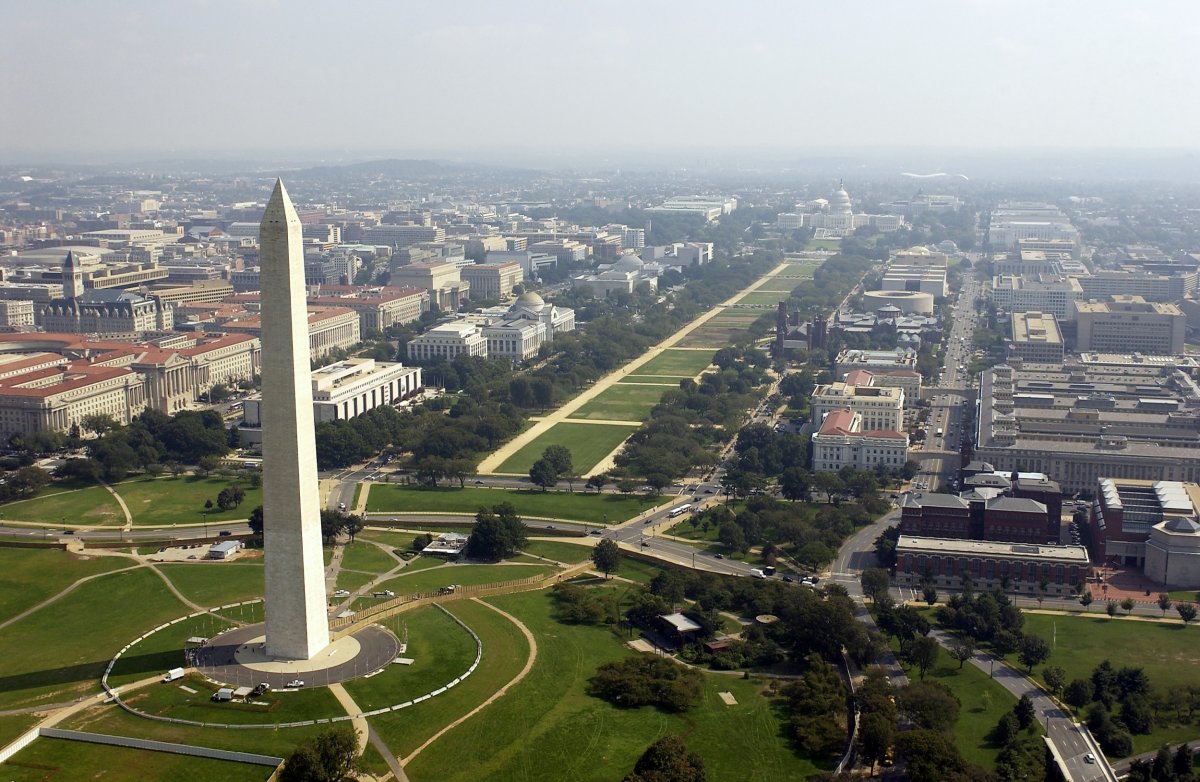Today, the House of Representatives will vote on whether or not to make Washington, D.C. a state. The District of Columbia is home to 700,000 residents who pay federal taxes but don't have any voting representatives in the U.S. Congress.
Residents of Washington, D.C., have been fighting for statehood and rights that come with it for two centuries and in 1963, with the passage of the 23rd Amendment, they gained the right to vote for president. In 1973, the Home Rule Act granted Washington, D.C. representative local government with a mayor and city council.
In 2000, Washington, D.C., began printing its license plates with "Taxation Without Representation" which was changed to "End Taxation Without Representation" in 2016, to protest the lack of rights afforded to the city-state.
At a news conference at the Capitol, House Speaker Nancy Pelosi said: "For more than two centuries, the residents of Washington, D.C., the District of Columbia, have been denied their right to fully participate in their democracy.
"Instead, they have been dealt the injustice of paying taxes, proudly serving in uniform in great numbers and contributing to the economic power of our nation while being denied the full enfranchisement which is their right."

The upcoming vote was sparked by anger over the federal government treatment of the Black Lives Matter as federal police blocked a street in Mayor Muriel Bowser's legal jurisdiction. In an opinion piece for The Washington Post, Bowser said: "This blatant degradation of our home right before my own eyes offered another reminder—a particularly powerful one—of why we need statehood for the District.
"Another reminder that the fight for statehood cannot be separated from the fight for racial justice."
If Washington, D.C. was granted statehood, National Guard members from other states would be prevented from coming into the city without its consent. It could also prevent the federalization of local law enforcement, as well as giving the city's resident's a vote in Congress.
President Donald Trump opposes the proposition and said in a tweet that got flagged by Twitter for violating its rules around abusive behavior: "There will never be an 'Autonomous Zone' in Washington, D.C., as long as I'm your President. If they try they will be met with serious force!"
There will never be an “Autonomous Zone” in Washington, D.C., as long as I’m your President. If they try they will be met with serious force!
— Donald J. Trump (@realDonaldTrump) June 23, 2020
In May, Trump told the New York Post: "D.C. will never be a state. You mean District of Columbia, a state? Why? So we can have two more Democratic—Democrat senators and five more congressmen? No thank you. That'll never happen."
Why isn't Washington, D.C. a state?
The reason why Washington, D.C. isn't a state can be traced back to the American Revolution when the Continental Congress had no permanent location. The founding fathers disagreed about the location of a permanent capital when writing the U.S. Constitution, but they agreed on the idea of a federal city.
Washington, D.C. was chosen as the capital in 1790 due to a compromise between Alexander Hamilton and northern states, and Thomas Jefferson and southern states.
In a deal named the Compromise of 1790, they decided on a capital located towards the south as Jefferson and southern leaders feared northern control of the U.S., as Hamilton's economic policies consolidated the power of the bankers and financiers in the north.
Washington, D.C.'s lack of statehood is written in Article 1, Section 8, Clause 17 of the Constitution, which says: "The Congress shall have Power To ...exercise exclusive Legislation in all Cases whatsoever, over such District (not exceeding ten Miles square) as may, by Cession of particular States, and the Acceptance of Congress, become the Seat of the Government of the United States."
James Madison explained the reasoning behind the article when he wrote: "The indispensable necessity of complete authority at the seat of government, carries its own evidence with it...
"Without it, not only the public authority might be insulted and its proceedings interrupted with impunity; but a dependence of the members of the general government on the State comprehending the seat of the government, for protection in the exercise of their duty, might bring on the national councils an imputation of awe or influence, equally dishonorable to the government and dissatisfactory to the other members of the Confederacy."
The founders were worried that if Washington, D.C. were a state, its voting members would be able to interrupt the proceedings of the government and they worried that the government would be obliged to the residents of its state.
Therefore, when the capital was moved to the District of Columbia, its residents lost their voting rights.
Today, residents of Washington, D.C. do not have the same voting rights as other U.S. citizens and they do not have Congressional representation apart from a nonvoting delegate in the House of Representatives, Eleanor Holmes Norton, who said yesterday: "Throughout its existence, the county has flattered itself by saluting itself as a democracy.
"With the passage of this rule and then the D.C. statehood bill, that flattery will at least, and at last, will be deserved."
Uncommon Knowledge
Newsweek is committed to challenging conventional wisdom and finding connections in the search for common ground.
Newsweek is committed to challenging conventional wisdom and finding connections in the search for common ground.
About the writer
To read how Newsweek uses AI as a newsroom tool, Click here.








